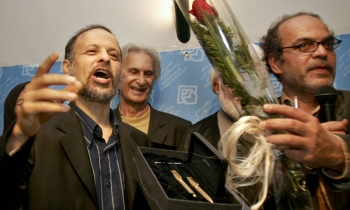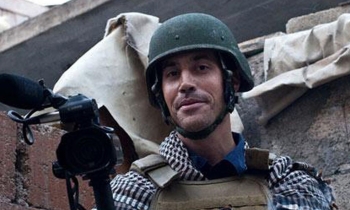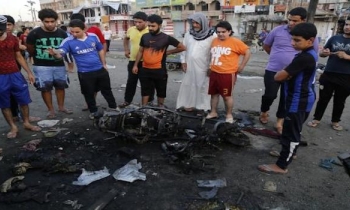Forty-six women journalists have been killed worldwide while doing their job since 1992, two are currently being held hostage in Iraq, and six others languish in jails elsewhere, Reporters sans Frontières (RSF) has said.
RSF called for the release of Jill Carroll and Rim Zeid, held hostage in Iraq, and for six other women journalists who are imprisoned in Cuba, Ethiopia, Iran, Maldives, Nepal and Rwanda. RSF also paid tribute to the family of Atwar Bahjat, a reporter on Al-Arabiya television, who was murdered on February 22 in Samarra, north of Baghdad.
American journalist Jill Carroll, 28, working for several international media including the Boston daily Christian Science Monitor, was kidnapped in Baghdad, on January 7 this year. Since then, two video tapes have been released showing her in captivity. On February 1, journalist Rim Zeid and her colleague Marwan Khazaal, working for local Al-Sumariya TV were leaving a press conference at the HQ of the Iraqi Islamic Party in Baghdad, when they were intercepted by four armed men. They were taken to an unknown destination.
Since the start of the war in Iraq in March 2003, eight women journalists have been kidnapped. One of them, Raeda Wazzan, was killed by her captors, in February 2005.
Among the 24 journalists imprisoned in Cuba is one woman, Lamasiel Gutiérrez Romero, correspondent for the Nueva Prensa Cubana news agency. She was placed in custody on October 11, 2005 at a women’s prison in Mantonegro, in Havana province, after resuming her work as a journalist. She had been sentenced in August to six months house arrest for the "offence of resistance and civil disobedience" and had been banned from practicing her profession for the duration.
In Ethiopia, opposition politician and correspondent for the US online news website Ethiopian Review, Frezer Negash, has been in prison since January 17. She is more than four months pregnant. She is being held at the Maikelawi police station in Addis Ababa but no charge has been framed against her.
Elham Afrotan, journalist on the weekly Tamadone Hormozgan, has been imprisoned at Evin jail in Iran, since 23 January 2006. She and six other contributors to the newspaper were arrested after publishing a satirical article about Ayatollah Khomeini.
At the heart of the tourist paradise of the Maldives, a young woman of 32 is living through hell. Jennifer Latheef, a reporter and photographer on the daily Minivan, was sentenced in September 2005, to ten years in prison for a "terrorist act". She was released at the end of December for treatment of injuries caused by police brutality. She is under house arrest and cannot move around freely.
In Nepal, Bhawana Prasain, 24, of the monthly Majdur Aawaj, held since February 9, said she had been beaten by the police trying to force her to confess to being a member of the Maoist militants. She was arrested during an opposition demonstration in the streets of Kathmandu.
Tatiana Mukakibibi has been held in Rwanda since October 1996. She was a presenter and producer on Radio Rwanda. After the genocide, she worked in Kapgayi, south of Kigali with the priest, André Sibomana, former editor of Kinyamateka and a 1994 RSF - Fondation de France press freedom award winner. She says her imprisonment is the result of being framed by people in her village because André Sibomana was sending reports to international organisations exposing abuses committed by Tutsis in reprisal for the April 1994 genocide. Since then the charges have changed but there has been no progress in dealing with her case and she is being held in appalling conditions.
Several women journalists have been killed over the past few years. In the vast majority of cases, the courts in their countries have failed to bring murderers to trial.
In Iran, two years and half after the event, the justice system is still obstructing progress in the investigation into the death of photographer Zahra Kazemi. The only person charged was cleared after a trial held behind closed doors. In the Philippines, the instigators of the murder of Marlene Esperat have still not been identified, a year after her death.
In Somalia, there is very little likelihood of a conviction of the killers of Kate Peyton, 39, or of Duniya Muhiyadin Nur, 26. The same situation exists in Belarus, where the authorities ensure that those who murdered Veronika Cherkasova in October 2004 enjoy complete impunity. In Mexico, despite the efforts of the justice system, the murderers of Dolores Guadalupe Garcia have not been unmasked.
RSF also paid tribute to May Chidiac, presenter on Lebanese LBC television, victim of a car bombing in the centre of Beirut, in September 2005. She escaped with her life, but was very badly mutilated.









